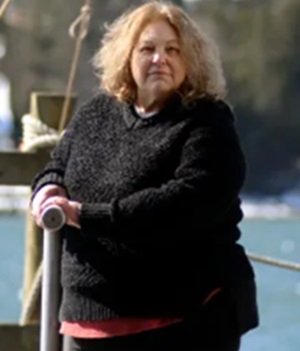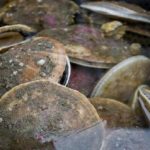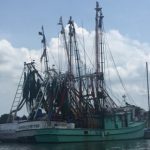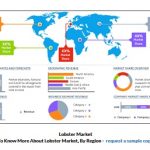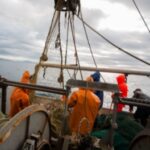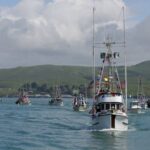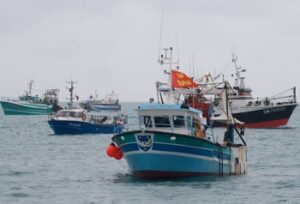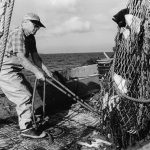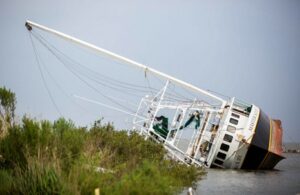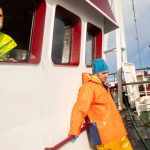Tag Archives: Maine Coast Fishermen’s Association
Trump’s Regulatory Freeze Throws US Fishing Industry Into Chaos
 President Donald Trump’s regulatory freeze has injected chaos and uncertainty into a number of lucrative American fisheries, raising the risk of a delayed start to the fishing season for some East Coast cod and haddock fleets and leading to overfishing of Atlantic bluefin tuna, according to Reuters interviews with industry groups and federal government employees. America’s $320 billion fishing industry relies on a branch of the federal government, the National Oceanic and Atmospheric Administration, to manage coastal fisheries. Under a 1976 law, NOAA’s National Marine Fisheries Service develops management plans for 45 fisheries, setting quotas and determining the start and close of fishing seasons, in consultation with federal government scientists and local fishermen. more, >>CLICK TO READ<< 09:19
President Donald Trump’s regulatory freeze has injected chaos and uncertainty into a number of lucrative American fisheries, raising the risk of a delayed start to the fishing season for some East Coast cod and haddock fleets and leading to overfishing of Atlantic bluefin tuna, according to Reuters interviews with industry groups and federal government employees. America’s $320 billion fishing industry relies on a branch of the federal government, the National Oceanic and Atmospheric Administration, to manage coastal fisheries. Under a 1976 law, NOAA’s National Marine Fisheries Service develops management plans for 45 fisheries, setting quotas and determining the start and close of fishing seasons, in consultation with federal government scientists and local fishermen. more, >>CLICK TO READ<< 09:19
Department of Commerce agrees to renegotiate Maine Sea Grant funding
 The U.S. Department of Commerce has agreed to renegotiate funding for the Maine Sea Grant, five days after the National Oceanic and Atmospheric Administration informed the University of Maine that it was discontinuing its funding for the grant. U.S. Commerce Secretary Howard Lutnick has directed NOAA to renegotiate the terms and conditions of the Maine Sea Grant funding agreement after he and his office had conversations with Sen. Susan Collins, Maine’s senior U.S. senator, and her staff. According to Collins, Lutnick wants to ensure the work performed by the Maine Sea Grant focuses on advancing the state’s coastal economies, working waterfronts and sustainable fisheries. more, >>CLICK TO READ<< 10:41
The U.S. Department of Commerce has agreed to renegotiate funding for the Maine Sea Grant, five days after the National Oceanic and Atmospheric Administration informed the University of Maine that it was discontinuing its funding for the grant. U.S. Commerce Secretary Howard Lutnick has directed NOAA to renegotiate the terms and conditions of the Maine Sea Grant funding agreement after he and his office had conversations with Sen. Susan Collins, Maine’s senior U.S. senator, and her staff. According to Collins, Lutnick wants to ensure the work performed by the Maine Sea Grant focuses on advancing the state’s coastal economies, working waterfronts and sustainable fisheries. more, >>CLICK TO READ<< 10:41
Judge allows Maine lobstermen’s lawsuit over ‘red listing’ to advance
 After almost two years in limbo, a defamation lawsuit Maine lobstering groups filed against a California aquarium can move forward, a federal judge ruled Friday. The Maine Lobsterman’s Association, the Maine Coast Fishermen’s Association and three lobster businesses sued the Monterey Bay Aquarium Foundation in 2023 after the organization’s Seafood Watch program put lobster on a “red list” of seafood consumers should avoid. The Monterey Bay Aquarium Foundation argued that it has a right to make its rating based on Maine’s free speech laws. But U.S. District Judge John Woodcock disagreed. Maine lobstermen have said that the red listing not only is false but also has caused significant economic harm to them and the Maine lobster brand. Companies like Whole Foods, Hello Fresh and Blue Apron subsequently pulled Gulf of Maine lobster from their menus, in line with Seafood Watch’s allegations. more, >>CLICK TO READ<< 09:42
After almost two years in limbo, a defamation lawsuit Maine lobstering groups filed against a California aquarium can move forward, a federal judge ruled Friday. The Maine Lobsterman’s Association, the Maine Coast Fishermen’s Association and three lobster businesses sued the Monterey Bay Aquarium Foundation in 2023 after the organization’s Seafood Watch program put lobster on a “red list” of seafood consumers should avoid. The Monterey Bay Aquarium Foundation argued that it has a right to make its rating based on Maine’s free speech laws. But U.S. District Judge John Woodcock disagreed. Maine lobstermen have said that the red listing not only is false but also has caused significant economic harm to them and the Maine lobster brand. Companies like Whole Foods, Hello Fresh and Blue Apron subsequently pulled Gulf of Maine lobster from their menus, in line with Seafood Watch’s allegations. more, >>CLICK TO READ<< 09:42
Downeast businesses are learning from January storms. How Midcoast Maine can learn from Downeast.
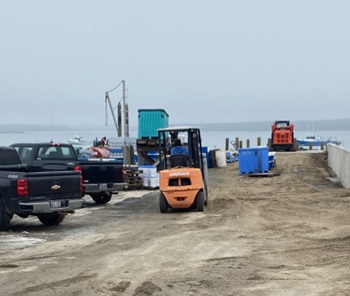 The owners of Chipman’s Wharf, a seafood market, buying station and restaurant in Milbridge, had a brutal awakening after the powerful January storms wiped away their 106-foot wharf. The proprietors, brothers Chris and Jason Chipman and their wives, had insurance that would have covered damage to the pier from fire or an airplane crash, but not storms. The two families are still reeling from the shock. The Maine Coast Fishermen’s Association estimated at least 60 percent of Maine’s working waterfronts were heavily damaged or destroyed in the January storms. Since then, many coastal businesses have had to decide whether to abandon their enterprises or rebuild, hoping to fortify their properties against future major storms — in some cases with a cash infusion from the state. more, >>CLICK TO READ<< 07:16
The owners of Chipman’s Wharf, a seafood market, buying station and restaurant in Milbridge, had a brutal awakening after the powerful January storms wiped away their 106-foot wharf. The proprietors, brothers Chris and Jason Chipman and their wives, had insurance that would have covered damage to the pier from fire or an airplane crash, but not storms. The two families are still reeling from the shock. The Maine Coast Fishermen’s Association estimated at least 60 percent of Maine’s working waterfronts were heavily damaged or destroyed in the January storms. Since then, many coastal businesses have had to decide whether to abandon their enterprises or rebuild, hoping to fortify their properties against future major storms — in some cases with a cash infusion from the state. more, >>CLICK TO READ<< 07:16
Conservationists seek permanent marine protection for Cashes Ledge off Cape Ann
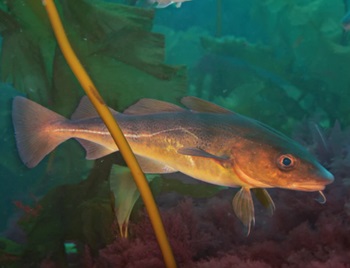 The Conservation Law Foundation, based in Boston, submitted a nomination to the National Oceanic and Atmospheric Administration (NOAA) today to designate Cashes Ledge as a sanctuary. National marine sanctuaries are permanently protected from fishing, shipping and ocean dumping and offer a haven for marine life and an undisturbed ecological site for scientific research. The nomination triggers a yearslong review process that could lead to the 766-square mile site being formally designated. The area is currently under fishing restrictions set by the New England Fisheries Management Council, but the conservation foundation said those limits are always subject to change and leave this habitat vulnerable. more, >>CLICK TO READ<< 08:05
The Conservation Law Foundation, based in Boston, submitted a nomination to the National Oceanic and Atmospheric Administration (NOAA) today to designate Cashes Ledge as a sanctuary. National marine sanctuaries are permanently protected from fishing, shipping and ocean dumping and offer a haven for marine life and an undisturbed ecological site for scientific research. The nomination triggers a yearslong review process that could lead to the 766-square mile site being formally designated. The area is currently under fishing restrictions set by the New England Fisheries Management Council, but the conservation foundation said those limits are always subject to change and leave this habitat vulnerable. more, >>CLICK TO READ<< 08:05
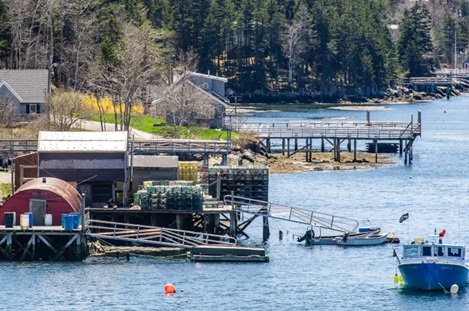
Harpswell adopts ‘right to fish’
Harpswell has a new right-to-fish policy intended to protect the town’s working waterfronts and fishermen. “We have a sign when you come into town saying we’re a working waterfront community. We’re pushing the town to do more than just a sign,” Cundy’s Harbor fisherman Matt Gilley, who helped develop the policy, told the Anchor before the meeting. The Harpswell Select Board approved the policy unanimously on July 11, but not before some tense exchanges between board members and advocates. The policy commits the town to several actions. Speaking to the Anchor, Gilley emphasized a provision protecting fishermen from nuisance complaints about sights, sounds or smells that might result from fishing activities, like operating boat engines or storing fishing traps on private property. Maine law already prevents such complaints against fishermen who are operating in line with applicable laws or rules. more, >>CLICK TO READ<< 13:38
Waterfront property owners scramble to repair after damaging storms, fearing lobster fishing season at risk
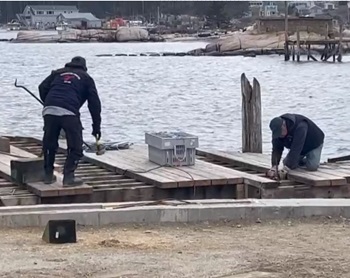 According to Gov. Janet Mills, the back-to-back storms that hit the state earlier this year left behind more than $70 million in damage to Maine’s infrastructure, including the destruction of several working waterfront properties and docks, ultimately leaving the success of this year’s lobster fishing season uncertain. Last week, the Maine Legislature signed off on a $60 million supplemental budget for storm damage relief. Aldrige’s ferry dock was damaged by storms as well, but his repairs are complete. He said he’s watching lobstermen push on at their lowest. “Fishermen are carting bait from trucks down on carts to where a dock used to exist,” Video, more, >>CLICK TO READ<< 09:28
According to Gov. Janet Mills, the back-to-back storms that hit the state earlier this year left behind more than $70 million in damage to Maine’s infrastructure, including the destruction of several working waterfront properties and docks, ultimately leaving the success of this year’s lobster fishing season uncertain. Last week, the Maine Legislature signed off on a $60 million supplemental budget for storm damage relief. Aldrige’s ferry dock was damaged by storms as well, but his repairs are complete. He said he’s watching lobstermen push on at their lowest. “Fishermen are carting bait from trucks down on carts to where a dock used to exist,” Video, more, >>CLICK TO READ<< 09:28
Fishermen Feeding Mainers awarded $750K in federal funds
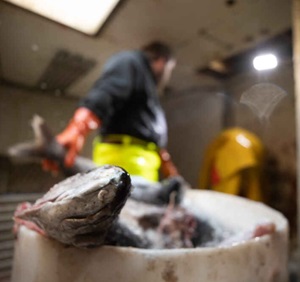 Fishermen Feeding Mainers, a program of the Maine Coast Fishermen’s Association, will be receiving $750,000 in federal funding thanks to an appropriations request submitted by Sen. Susan Collins (R-Maine) and Sen. Angus King (I-Maine). The successful request will provide funding for the program through Good Shepherd Food Bank of Maine. The Fishermen Feeding Mainers program began in October 2020 in response to the collapse of local markets and rising food insecurity in Maine. Initially funded by an anonymous foundation, the Maine Coast Fishermen’s Association partnered with Good Shepherd Food Bank to distribute donated fish to food pantries, meal sites and additional hunger-relief organizations located throughout the state. more, >>CLICK TO READ<< 06:25
Fishermen Feeding Mainers, a program of the Maine Coast Fishermen’s Association, will be receiving $750,000 in federal funding thanks to an appropriations request submitted by Sen. Susan Collins (R-Maine) and Sen. Angus King (I-Maine). The successful request will provide funding for the program through Good Shepherd Food Bank of Maine. The Fishermen Feeding Mainers program began in October 2020 in response to the collapse of local markets and rising food insecurity in Maine. Initially funded by an anonymous foundation, the Maine Coast Fishermen’s Association partnered with Good Shepherd Food Bank to distribute donated fish to food pantries, meal sites and additional hunger-relief organizations located throughout the state. more, >>CLICK TO READ<< 06:25
Offshore wind threatens centuries of fishing
 Many people today think that offshore wind power will be able to give us abundant (long-lived?) clean energy. The water in the Gulf of Maine is very deep, any turbines sited there will be on floating platforms anchored to the seabed with giant chains. It is important to remember that the Gulf of Maine is the life blood of all our coastal fishing communities. I participated in an interesting project some years ago when the Maine Coast Fishermen’s Association was formed. We worked with Island Institute to document how each fishing community extended far out to sea. Each community has traditional grounds that have been worked for centuries by fishermen from those communities. Fishing sustains coastal New England. If offshore wind industrialization is allowed in these fishing grounds the communities connected to these areas will suffer. by Glen Libby, more, >>click to read<< 10:52
Many people today think that offshore wind power will be able to give us abundant (long-lived?) clean energy. The water in the Gulf of Maine is very deep, any turbines sited there will be on floating platforms anchored to the seabed with giant chains. It is important to remember that the Gulf of Maine is the life blood of all our coastal fishing communities. I participated in an interesting project some years ago when the Maine Coast Fishermen’s Association was formed. We worked with Island Institute to document how each fishing community extended far out to sea. Each community has traditional grounds that have been worked for centuries by fishermen from those communities. Fishing sustains coastal New England. If offshore wind industrialization is allowed in these fishing grounds the communities connected to these areas will suffer. by Glen Libby, more, >>click to read<< 10:52
Maine Fishermen Caught More Fish in 2023, Thanks to a Hunger Relief Program and COVID Funds
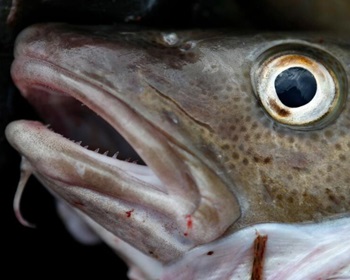 Maine fishermen bucked yearslong, industrywide trends last year and caught more fish, a development regulators and industry members said shows the impact of COVID-19 relief funds. The catch of haddock more than doubled to more than 500,000 pounds (226,796 kilograms), and the catches of Atlantic cod, witch flounder and Atlantic halibut were all up significantly. Federal money also supported the Fishermen Feeding Mainers program, which buys fish to support food banks and schools. Maine Coast Fishermen’s Association, an industry nonprofit group, launched the Fishermen Feeding Mainers program in part to help the groundfish industry survive the COVID-19 pandemic. more, >>click to read<< 15:23
Maine fishermen bucked yearslong, industrywide trends last year and caught more fish, a development regulators and industry members said shows the impact of COVID-19 relief funds. The catch of haddock more than doubled to more than 500,000 pounds (226,796 kilograms), and the catches of Atlantic cod, witch flounder and Atlantic halibut were all up significantly. Federal money also supported the Fishermen Feeding Mainers program, which buys fish to support food banks and schools. Maine Coast Fishermen’s Association, an industry nonprofit group, launched the Fishermen Feeding Mainers program in part to help the groundfish industry survive the COVID-19 pandemic. more, >>click to read<< 15:23
Made in Maine: a smoked pollock dip that benefits Maine’s fishing community
 A partnership between the Maine Coast Fishermen’s Association and Dunstan Smokehouse is putting a sustainable and under-utilized Maine-caught fish on more dinner tables. Smoked pollock is the star ingredient of a new dip available on retail shelves from Scarborough to Brunswick. “Pollock is a delicious fish, and certainly under-utilized,” Jim Hartley, the owner/operator of Dunstan Smokehouse where the dip is made. “Haddock is a little prettier.” “We came up with a really neat recipe that we thought was delicious based on a Scottish Finnan haddie recipe.” Vlideo, more, >click to read<< 10:40
A partnership between the Maine Coast Fishermen’s Association and Dunstan Smokehouse is putting a sustainable and under-utilized Maine-caught fish on more dinner tables. Smoked pollock is the star ingredient of a new dip available on retail shelves from Scarborough to Brunswick. “Pollock is a delicious fish, and certainly under-utilized,” Jim Hartley, the owner/operator of Dunstan Smokehouse where the dip is made. “Haddock is a little prettier.” “We came up with a really neat recipe that we thought was delicious based on a Scottish Finnan haddie recipe.” Vlideo, more, >click to read<< 10:40
Coastal rebuilding in ‘limbo’ as residents await answers
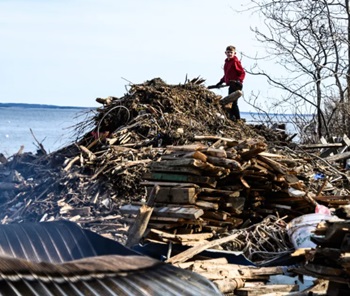 Bailey Island lobsterman and building contractor Guy Baker would like to rebuild the large wharf on his property that was torn to pieces in January’s coastal storms, but there are several unknowns. Nearly six weeks after back-to-back storms struck the Maine coast on Wednesday, Jan. 10, and Saturday, Jan. 13, the Harpswell resident still doesn’t know what sort of emergency funding he will receive, if any, to rebuild. He doesn’t know how long the town might give him to replace a generations-old structure that didn’t conform to current building codes. Baker doesn’t know what replacing the wharf would cost, or how long he’d have to wait for a specialty contractor to take on the job. He assumes prices have skyrocketed as property owners rush to repair millions of dollars’ worth of damage along the Maine coast. Baker isn’t alone. more, >>click to read<< 08:34
Bailey Island lobsterman and building contractor Guy Baker would like to rebuild the large wharf on his property that was torn to pieces in January’s coastal storms, but there are several unknowns. Nearly six weeks after back-to-back storms struck the Maine coast on Wednesday, Jan. 10, and Saturday, Jan. 13, the Harpswell resident still doesn’t know what sort of emergency funding he will receive, if any, to rebuild. He doesn’t know how long the town might give him to replace a generations-old structure that didn’t conform to current building codes. Baker doesn’t know what replacing the wharf would cost, or how long he’d have to wait for a specialty contractor to take on the job. He assumes prices have skyrocketed as property owners rush to repair millions of dollars’ worth of damage along the Maine coast. Baker isn’t alone. more, >>click to read<< 08:34
‘Working Waterfront Support Fund’ helping Maine fishermen impacted by recent storms
 It could be a while before Maine’s commercial fishing industry really sees the extent of the damage caused by the recent storms and flooding. Restoration efforts are underway now along the coast. The Maine Coast Fishermen’s Association is stepping in to help. They’ve established the “Working Waterfront Support Fund.” They’re encouraging Mainers to make a contribution to help in the reconstruction of the working waterfront. more, >>click to read<< 07:52
It could be a while before Maine’s commercial fishing industry really sees the extent of the damage caused by the recent storms and flooding. Restoration efforts are underway now along the coast. The Maine Coast Fishermen’s Association is stepping in to help. They’ve established the “Working Waterfront Support Fund.” They’re encouraging Mainers to make a contribution to help in the reconstruction of the working waterfront. more, >>click to read<< 07:52
Maine Beer Co. donates $30,000 to Maine Coast Fishermen’s Association for storm recovery
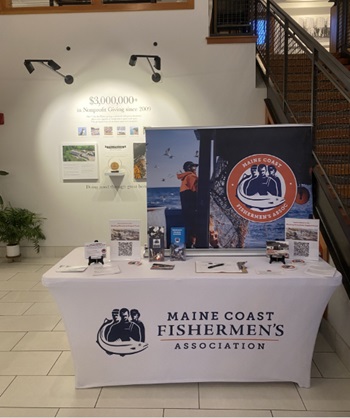 Freeport’s Maine Beer Co. donated over $30,000 this weekend to the Maine Coast Fishermen’s Association to help coastal communities address the aftermath of a pair of January storms that caused widespread damage and flooding. “We’re all very well aware of the record high tides that we’ve experienced over [that] weekend, and we’ve all read about the damage that has happened to our coastal communities,” said Maine Beer Co. CEO Steve Mills. “It seemed like a very natural fit to partner up [with the MCFA].” The funds will go to help fishermen and waterfront businesses clean up and rebuild, according to Susan Olcott, director of operations at MCFA. more, >>click to read<< 18:40
Freeport’s Maine Beer Co. donated over $30,000 this weekend to the Maine Coast Fishermen’s Association to help coastal communities address the aftermath of a pair of January storms that caused widespread damage and flooding. “We’re all very well aware of the record high tides that we’ve experienced over [that] weekend, and we’ve all read about the damage that has happened to our coastal communities,” said Maine Beer Co. CEO Steve Mills. “It seemed like a very natural fit to partner up [with the MCFA].” The funds will go to help fishermen and waterfront businesses clean up and rebuild, according to Susan Olcott, director of operations at MCFA. more, >>click to read<< 18:40
Fishermen Feeding Mainers reaches one-million-meal milestone
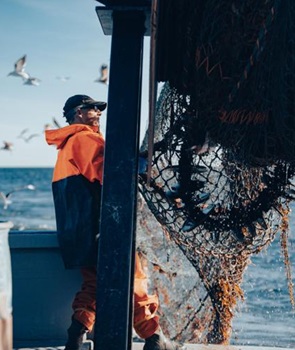 Fresh Maine-caught fish for local families has filled food pantry coolers since October 2020, through Fishermen Feeding Mainers. Maine Coast Fishermen’s Association (MCFA) started the program late in 2020 during the COVID pandemic to support both hungry families and ground fleet fishermen whose earnings were hit when restaurants and other seafood buyers shut down. Since then, the Brunswick-based nonprofit’s arms have reached across Maine, serving more than one million meals to families through 250 food pantries and more than 30 school districts — and giving boots-on-the-ground backing to the notion that “Mainers always unite in difficult times,” in the words of Mary Hudson, director of fisheries programs at MCFA. more, >>click to read<< 12:46
Fresh Maine-caught fish for local families has filled food pantry coolers since October 2020, through Fishermen Feeding Mainers. Maine Coast Fishermen’s Association (MCFA) started the program late in 2020 during the COVID pandemic to support both hungry families and ground fleet fishermen whose earnings were hit when restaurants and other seafood buyers shut down. Since then, the Brunswick-based nonprofit’s arms have reached across Maine, serving more than one million meals to families through 250 food pantries and more than 30 school districts — and giving boots-on-the-ground backing to the notion that “Mainers always unite in difficult times,” in the words of Mary Hudson, director of fisheries programs at MCFA. more, >>click to read<< 12:46
One giant leap for fishermen’s mental health
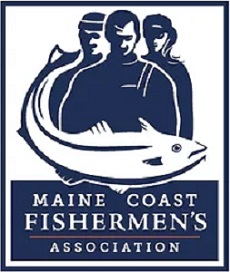 In Dec. 2021, representatives of the Maine Coast Fishermen’s Association and NAMI Maine published a column in the Portland Press Herald headlined: “We need more awareness of mental health stresses on Maine’s fishermen.” This week, nearly two years to the day, Sens. Susan Collins, Edward Markey and Dan Sullivan introduced the Fishing Industry Safety, Health, and Wellness Improvement (FISH Wellness) Act to better address the range of occupational safety and health risks facing fishermen, including worker fatigue and substance use disorder. MCFA is thankful to the senators for spearheading this effort, and to our colleagues at the Fishing Partnership Support Services and New England Young Fishermen’s Alliance who champion and advocate for efforts to support the health, well being and safety of commercial fishermen. more, >>click to read<< 09:34
In Dec. 2021, representatives of the Maine Coast Fishermen’s Association and NAMI Maine published a column in the Portland Press Herald headlined: “We need more awareness of mental health stresses on Maine’s fishermen.” This week, nearly two years to the day, Sens. Susan Collins, Edward Markey and Dan Sullivan introduced the Fishing Industry Safety, Health, and Wellness Improvement (FISH Wellness) Act to better address the range of occupational safety and health risks facing fishermen, including worker fatigue and substance use disorder. MCFA is thankful to the senators for spearheading this effort, and to our colleagues at the Fishing Partnership Support Services and New England Young Fishermen’s Alliance who champion and advocate for efforts to support the health, well being and safety of commercial fishermen. more, >>click to read<< 09:34
Maine lobstermen signal opposition to participating in ropeless testing program
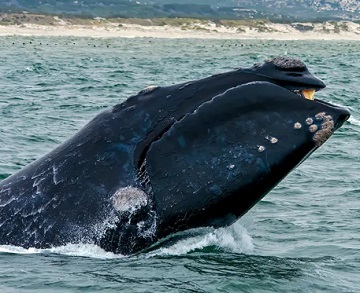 Maine lobstermen are signaling their hesitation to participate in a multimillion-dollar program the state is launching to test new ropeless technology that the federal government soon may require to protect the endangered North Atlantic right whale. Lobstermen have been largely unhappy with the regulations, fearing that the regulations will destroy the lobstering industry as they know it. Maine’s congressional delegation succeeded in securing legislative approval for a reprieve that stalls the regulations from going into effect until Jan. 1, 2029. Industry groups also have succeeded in taking NOAA to court, where the regulations are still tied up. Even so, the clock is ticking and the Department of Marine Resources wants to be prepared for what it expects is an inevitable regulation. more, >>click to read<< 06:31
Maine lobstermen are signaling their hesitation to participate in a multimillion-dollar program the state is launching to test new ropeless technology that the federal government soon may require to protect the endangered North Atlantic right whale. Lobstermen have been largely unhappy with the regulations, fearing that the regulations will destroy the lobstering industry as they know it. Maine’s congressional delegation succeeded in securing legislative approval for a reprieve that stalls the regulations from going into effect until Jan. 1, 2029. Industry groups also have succeeded in taking NOAA to court, where the regulations are still tied up. Even so, the clock is ticking and the Department of Marine Resources wants to be prepared for what it expects is an inevitable regulation. more, >>click to read<< 06:31
NFWF grants support Maine lobster industry participation in alternative fishing gear testing
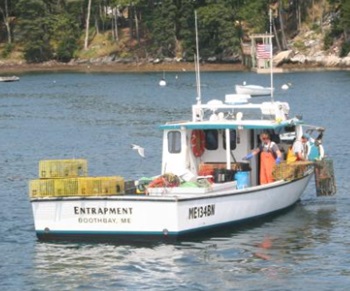 “Alternative gear, also known as “on demand” gear is a long way from being viable for fishermen or for whales,” said DMR Commissioner Patrick Keliher. “It is my goal to make sure we know what gear works, and more importantly what doesn’t work, so when future draft federal regulations come forward, we can draw on the real-world experience of fishermen when determining what the next steps should be.” One award of $1,999,992 will support the evaluation of acoustic geolocation systems that locate gear on the bottom without the benefit of surface buoys which are part of traditional gear configurations. Regional partners will include the Island Institute, Maine Center for Coastal Fisheries, Maine Coast Fishermen’s Association, the Sunrise County Economic Council, and the Gulf of Maine Lobster Foundation. more, >>click to read<< 06:09
“Alternative gear, also known as “on demand” gear is a long way from being viable for fishermen or for whales,” said DMR Commissioner Patrick Keliher. “It is my goal to make sure we know what gear works, and more importantly what doesn’t work, so when future draft federal regulations come forward, we can draw on the real-world experience of fishermen when determining what the next steps should be.” One award of $1,999,992 will support the evaluation of acoustic geolocation systems that locate gear on the bottom without the benefit of surface buoys which are part of traditional gear configurations. Regional partners will include the Island Institute, Maine Center for Coastal Fisheries, Maine Coast Fishermen’s Association, the Sunrise County Economic Council, and the Gulf of Maine Lobster Foundation. more, >>click to read<< 06:09

National mental health campaign targets commercial fishermen
The commercial fishing industry is known for its grueling work conditions and unpredictable nature, which can take a toll on the mental health of fishermen. However, despite the evident need, the industry has historically been underserved in terms of mental health care resources. Recently, the Maine Coast Fishermen’s Association and Northeast Center for Occupational Safety and Health teamed up to work with Man Therapy to create a campaign specifically targeting commercial fishermen. Man Therapy is an innovative approach that uses humor and relatable content to raise awareness about mental health care and provide resources for fishermen, according to a press release.>>click to read<< 09:45
Fishermen’s Alliance Highlights Offshore Wind Threat to Haddock, Lobster Fisheries in Gulf of Maine
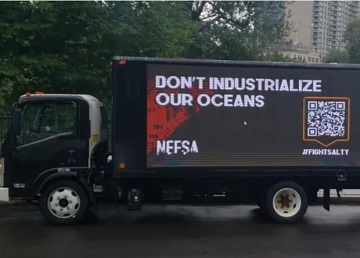 An alliance of groups representing New England’s fishermen is highlighting scientific research that suggests offshore wind development could have “population-scale effects” on key fish and crustacean species in the Gulf of Maine, including electromagnetism-induced deformities in lobsters. The New England Fishermen’s Stewardship Association (NEFSA) on Monday released an “Offshore Wind Research Summary” summarizing the existing scientific research on the environmental impact of offshore wind power development. The scientific evidence, they believe, shows that offshore wind development would have unpredictable and potentially harmful consequences for key marine species, such as lobster and haddock. >click to read< 17:37
An alliance of groups representing New England’s fishermen is highlighting scientific research that suggests offshore wind development could have “population-scale effects” on key fish and crustacean species in the Gulf of Maine, including electromagnetism-induced deformities in lobsters. The New England Fishermen’s Stewardship Association (NEFSA) on Monday released an “Offshore Wind Research Summary” summarizing the existing scientific research on the environmental impact of offshore wind power development. The scientific evidence, they believe, shows that offshore wind development would have unpredictable and potentially harmful consequences for key marine species, such as lobster and haddock. >click to read< 17:37
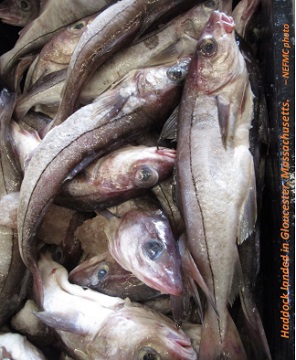
Haddock quotas for fishermen have been drastically cut. What does that mean for haddock eaters?
There is a haddock problem swimming around Gulf of Maine waters. But don’t blame the problem on fishermen catching too many haddock, say Maine commercial fishing advocates like Ben Martens, executive director of the Maine Coast Fishermen’s Association. In fact, they have been fishing in accordance with mandated quotas for decades, he said, regulatory measures that have returned the haddock stocks in the Gulf of Maine to sustainable levels. The problem, rather, is grounded in inaccurate accounting of the boom-and-bust cycles of haddock biomass, that is, how many fish are swimming in the Gulf of Maine at any given time. In April, the New England Fishery Management Council, a regional body that uses industry and scientific data to recommend quotas that restrict how many metric tons of regulated species Maine fishermen can haul in each year, announced a cut in haddock quotas. It represents an 80 percent reduction in allowable catch; the new season began on May 1. >click to read< 08:50
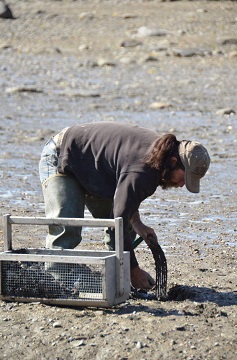
Harvesters at high risk for injury, but avoid doctors
Stooped over a 5-gallon bucket while wielding a clam rake in heavy, wet sand left by a receding tide? It’s hard work, but that’s where the clams are. The same holds true for hauling traps from the bottom of the ocean floor onto a lobster boat – if you want to sell lobsters. The Downeast Health Research Collaborative conducted a harvester health study led by Dr. Tora Johnson, a University of Machias professor who comes from a family of Downeast fishermen. The connection between injuries and pain and substance misuse is well known, but among fishery harvesters, the risk is high. “Chronic pain is the driver for most opioid use and misuse,” student Lauren Sachs said at the Northern Light Health symposium. To compound the issue, harvesters are self-employed and often are uninsured or underinsured for health care. >click to read< 18:39
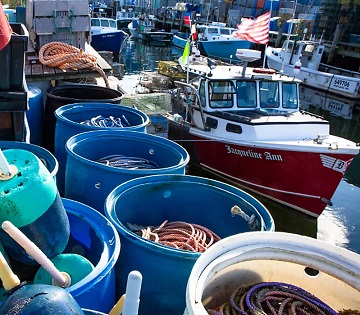
Maine’s seafood harvest has fallen 120M pounds since 2012
At 197 million pounds for all commercially harvested marine species, 2022 was the first time since 1975 that Maine’s reported annual seafood harvest has fallen short of 200 million pounds. In fact, the cumulative volume of Maine’s commercial fisheries dropped by more than 120 million pounds between 2012 and 2022, state data show. Patrick Keliher, head of the state’s Department of Marine Resources, said there are myriad reasons why fishery landings have declined — some regulatory, others environmental. Meanwhile, landings of lobster, which remains the state’s dominant fishery despite looming restrictions to better protect whales, have dipped in recent years but still are much higher than they were prior to the 1990s. >click to read< 09:12
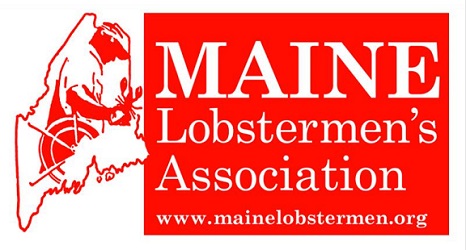
Maine Lobster Fishery Sues Monterey Bay Aquarium, Claims Attack on Maine Lobster Fishing Practices Is Defamatory
Maine lobster businesses and industry trade associations today filed a federal lawsuit against the Monterey Bay Aquarium Foundation (the “Aquarium”) for making false and defamatory statements about Maine lobster fishing practices and for misleading consumers and commercial lobster buyers about the integrity of the Maine lobster harvest. The lawsuit challenges the Aquarium’s claims that “scientific data” show that Maine lobster fishing practices are responsible for harming North Atlantic right whales. The lawsuit asserts that the Aquarium’s claims are in fact not supported by science, and that the Aquarium’s false statements have caused substantial economic harm to plaintiffs, as well as to the Maine lobster brand and to Maine’s long-standing reputation for a pristine coastal environment protected by a multi-generational tradition of preserving resources for the future. Plaintiffs include Bean Maine Lobster Inc., the Maine Lobstermen’s Association (MLA), the Maine Coast Fishermen’s Association, Atwood Lobster LLC, and Bug Catcher Inc., owned by sixth-generation fisherman Gerry Cushman of Port Clyde. To continue, >click to read< 12:57

NOAA lays out plans for expanded testing of ropeless fishing technology
In an effort to address the two main causes of human-induced whale mortality, vessel strikes and entanglement in fishing gear, the National Oceanic and Atmospheric Administration recently released rules to reduce ship speeds and its “Ropeless Roadmap” to prepare for widespread adoption of ropeless fishing. The vertical lines that connect strings of traps on the ocean floor to buoys on the surface can get caught on a whale’s fins or in its mouth as it swims, leading to death in some cases. There are fewer than 350 North Atlantic right whales, according to NOAA. On-demand fishing gear would eliminate the need for the vertical lines in the water until the lobster trap, pot or gillnet is being hauled. >click to read< 15:50
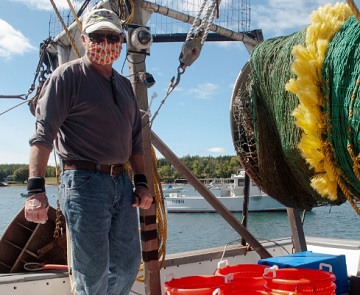
How many fish are in the sea? New rules intend to help with the count.
Regulators and fishermen hope new rules set to take effect this summer will provide a more accurate understanding of the population of some of New England’s most iconic fish, including Atlantic cod, which has seen a spectacular collapse in recent decades. The rules, adopted this spring by federal regulators, will require boats in groundfish sectors to have a human observer or a camera aboard on every groundfish trip to keep tabs on what they catch and discard. >click to read< 09:37
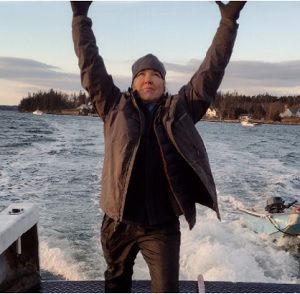
Maine seafood harvesters are taking on an unexpected new hobby
Lobstermen repeatedly haul unwieldy traps, oyster farmers bend over to pull up hulking cages and scallopers hunch over to shuck their prized shellfish at sea. Harvesting seafood for a living can exact a stiff toll on the lower back. The industry has long had a reputation for a “rub some dirt on it” mentality when it comes to these and other daily aches and pains, but a new program aims to introduce fishermen to yoga to keep them on their feet and out on the water. >click to read< 12:26
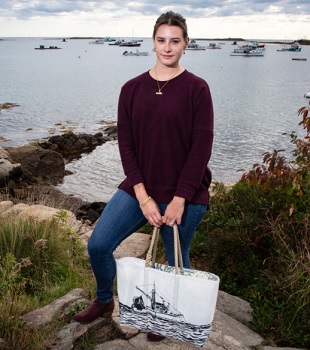
Daughter continues work of father lost at sea on Maine fishing boat
In January 2020, the 42-foot fishing boat Hayley Ann sank 50 miles southeast of Portland. The Coast Guard never determined what happened. No distress call was sent. Only an automated emergency beacon alerted them to the tragedy. The disaster claimed the lives of Capt. Arnold “Joe” Nickerson, 60, of Arundel and his crewman, 44-year-old Christopher Pinkham of Boothbay Harbor. >click to read< 15:58






